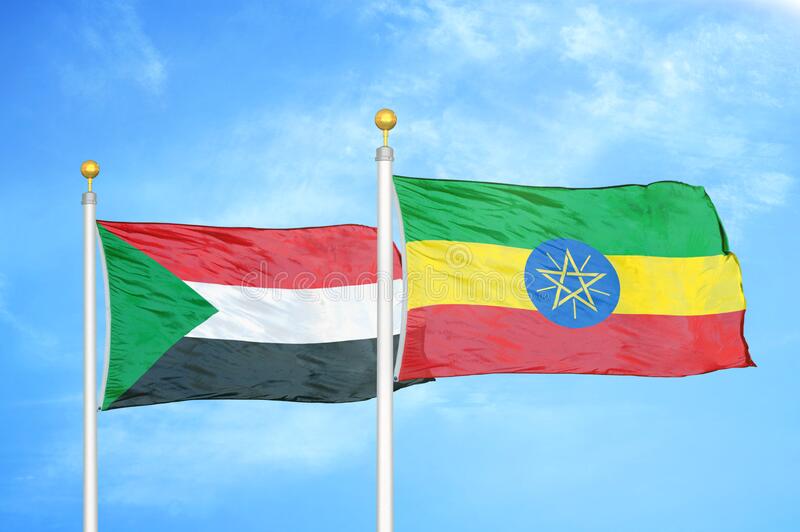Sudan as negotiator in Ethiopia’s ongoing conflict
1 October 2021
As northern Ethiopia’s devastating war enters its tenth month, the international pressure for a negotiated ceasefire and peaceful political settlement is gathering momentum. The war spread to neighboring Amhara and Afar regions despite a 28 June unilateral ceasefire issued by the federal government. In recent weeks, the Tigrayan forces were driven out of Afar but still occupy large swaths of the territory of the Amhara region.
After months of defiance, Debretsion Gebremichael, the leader of the rebellious Tigray People’s Liberation Front (TPLF), wrote to UN Chief Antonio Guterres at the end of August that the TPLF was ready for a negotiated end to the conflict. Despite mounting pressure, Ethiopia’s Prime Minister Abiy Ahmed, however, is yet to show a clear appetite for a negotiated ceasefire. Mass mobilization for the war is continuing unabated and the government is defiant against the threat of sanctions by its western partners. Peaceful resolution of the conflict is stymied by Grave human rights violations allegedly committed by both sides of the conflict — lately, by the rebels in Amhara and Afar regions.
As a neighboring country, Sudan has been troubled by the escalation of the Tigray conflict and hence has sought an immediate resolution of the conflict. As the new darling of the West in the Horn of Africa, the US and European countries have also wanted Sudan to play a leading role in the resolution of the crisis, though, to no avail to date.
Fighting broke out in Tigray in November 2020 when the federal government mounted an offensive against the Tigrayan forces, which had earlier attacked the Ethiopian army bases in Tigray. According to news reports and sources within Tigray, thousands are believed to have died in the ongoing conflict. The conflict has also created a catastrophic humanitarian crisis where more than 400,000 people in Tigray are, according to the UN, currently facing famine-like conditions. The spread of the war into neighboring regions has also put 1.7 million people in Amhara and Afar regions “on the brink of famine,” as per UN estimates.
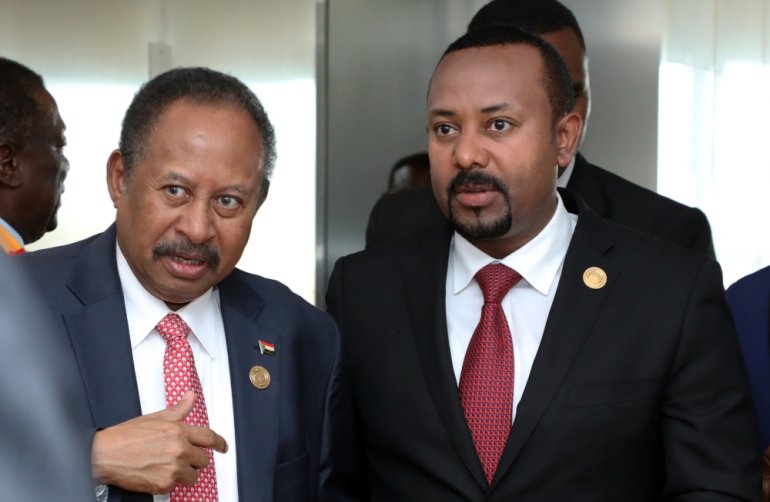
Sudan’s Missed Chances
While there are ongoing diplomatic efforts behind closed doors to end northern Ethiopia’s devastating conflict, yet a concrete external third-party mediation initiative has not emerged.
Sudan’s Prime Minister Abdella Hamdok, the current chairman of the regional bloc Intergovernmental Authority for Development (IGAD), was the first to attempt to broker a ceasefire when he talked to his Ethiopian counterpart Prime Minister Abiye in Addis Ababa in December 2020. As the visit came after the capture of Mekelle by the Ethiopian army, Abiy rebuffed Hamdok’s offer citing the fighting was essentially over. It wasn’t.
Prime minister Hamdok renewed his call to facilitate negotiations between the government and the TPLF again in August with the diplomatic backing of the US and the European Union (EU), Prime Minister Aniye rejected Hamdok’s mediation offer again this time saying Sudan was not a “credible party” and instead urged Sudan to withdraw its troops from the occupied Ethiopian border territory of Al Fashaga. Hamdok has, however, maintained his push for Sudan’s mediation role stressing the unfolding humanitarian tragedy will also impact Sudan.
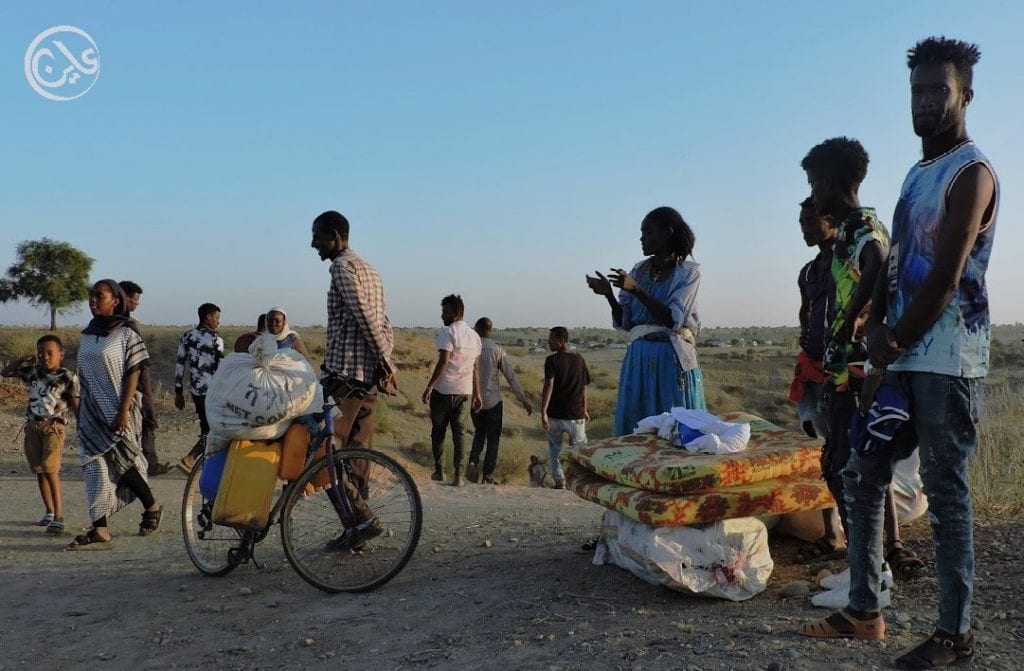
Sudan currently hosts over 48,000 refugees from Ethiopia’s war-ravaged Tigray. The staggering number of refugees is a burden on Sudan’s fragile infrastructure and economy that is grappling with severe challenges including skyrocketing inflation. The fact that the refugee camps are located in a politically tense and under-resourced region also attests to the gravity of the burden. In late August, however, UNHCR High Commissioner Filipo Grandi praised the Sudanese authorities during his visit to the refugee camps for improving the services at the camps. Before that, the refugee agency’s inadequate response was criticized by donors.
Apart from Ethiopia’s suspicion of Sudan’s neutrality, Prime Minister Hamdok’s push to broker peace for Ethiopia’s conflict was fraught with other problems.
The first limitation of Sudan has to do with political capability. Menychle Meseret, an Ethiopian regular political commentator and lecturer in Ethiopia’s University of Gondar, told Ayin: “Apart from the neutrality issue, Sudan lacks the capability to mediate a complex crisis such as the Tigray conflict” adding that the country is currently grappling with a myriad of domestic political and economic challenges.
Prime Minister Hamdok also took a bold stance over the Al Fashaga borderland dispute last month. Echoing the hard-liner Sudan’s Sovereign Council Chairman General Abdul Fattah al Burhan, Hamdok asserted that Sudan wouldn’t make any concession to Ethiopia over the border area. This statement preceded his offer to mediate the Ethiopian crisis.
Amid Ethiopia’s hardening position Sudan recently softened its stance and accepted Turkish President Tayyip Erdogan’s offer to mediate the border dispute albeit Sudan’s earlier refusal to consider a UAE mediation proposal. According to Meseret, the fact that the two countries have been closer to direct military confrontation over Al Fashaga also makes Hamdok’s mediation offer “simply unrealistic.”
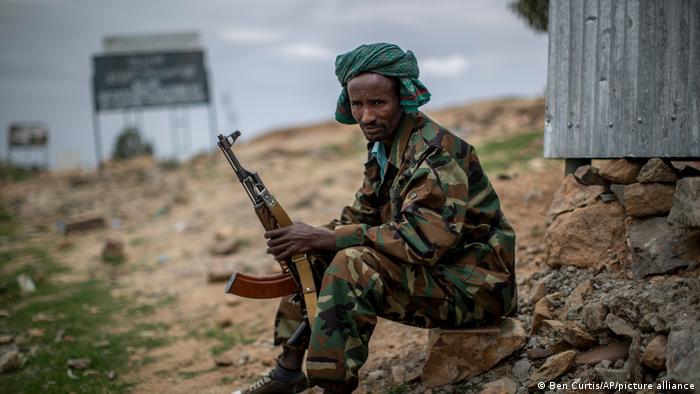
In the past weeks, the Ethiopian army said that a rebel contingent crossed from inside Sudan’s territory to Ethiopia and launched an offensive with the aim of “thwarting the Great Ethiopian Renaissance Dam (GERD). “There are credible reports,” says Meseret, “that Sudan is trying to profit from the Tigray conflict by becoming a safe haven for the TPLF insurgents.”
While Sudan immediately denied its involvement in supporting the rebels to launch attacks inside Ethiopian territory, the accusation marked a new escalation of the tension between the two countries. Sudan on its part accused the Ethiopian army recently of mounting an attack on Sudanese troops in the Al Fashaga area, which it said was successfully thwarted, though, the Sudanese army gave no further details.
More recently the UN High Commission for Refugees (UNHCR) got into a controversy with the Ethiopian government when the commission admitted that there was a “modest decrease” in the number of refugees in recent months but said it had no information regarding their whereabouts. The commission’s statement came amid Ethiopia’s allegation that several refugees reentered Ethiopia to fight alongside the TPLF. How much the Sudanese government knows about the whereabouts of the unknown number of refugees is unclear, but the UN statement undoubtedly will deepen Ethiopia’s suspicion as to which side of the Tigray conflict Sudan was standing.
In relation to this, Meseret stressed that “the TPLF oligarchs have had strong relations with some of the Sudanese army generals within the current transitional government. The TPLF has a tacit agreement with the Sudanese authorities to cede some of the disputed fertile agricultural lands that are claimed by Sudan when the former was in power in Addis Ababa. By giving land, the TPLF wants to solicit Sudan’s support to realize its contingent plan of creating a de facto Tigray statehood.”
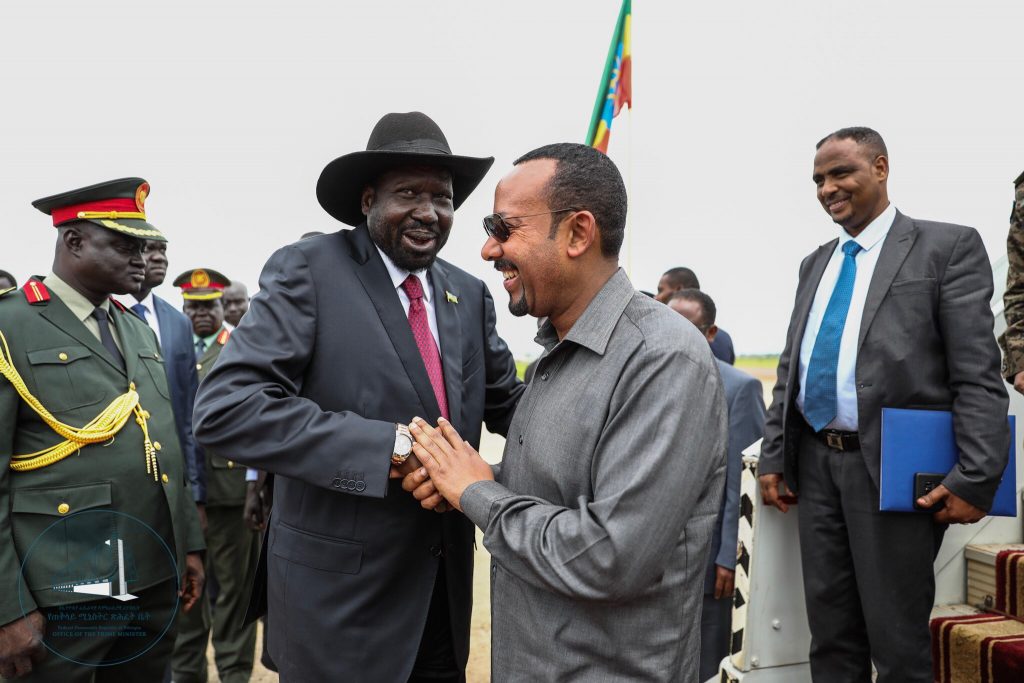
Hamdok Turns to Kiir
Prime Minister Hamdok has now turned to South Sudanese President Salva Kiir to mediate the Tigray conflict on behalf of IGAD. Although the specifics are scant, according to South Sudanese officials, Prime Minister Abiye accepted Kiir’s mediation offer during the latter’s visit to Addis Ababa in early September. Sharing a long border and planned infrastructural linkages, South Sudan also has its own stakes in Ethiopia’s peace and stability. Whether President Kiir has started his brokering role is unclear though.
While Sudan through IGAD is trying hard to facilitate a negotiated ceasefire between the Ethiopian government and the TPLF leadership, the African Union (AU) has also on its part assigned the former Nigerian president Olusegun Obasanjo as its High Representative to the Horn of Africa to find peaceful solutions to the Tigray conflict, the GERD dispute, and the Ethio-Sudan border row.
It remains to be seen whether Sudan will support the AU peace-making effort or give priority to IGAD’s chosen mediator President Kiir. In the event of direct talks between the Ethiopian government and the TPLF brokered by Obasanjo, Sudan may become a venue- but only if Prime Minister Abiye agrees.
Whether northern Ethiopia’s conflict is ripe for peaceful resolution at this stage or not, the absence of any meaningful mediation proposal to date, albeit multiple envoys and mediators, may portend the continuation of the conflict. Like all other conflicts, this conflict will end at some point however but in whose favor and at what additional cost including the cost on the country’s territorial integrity is difficult to predict at this moment.
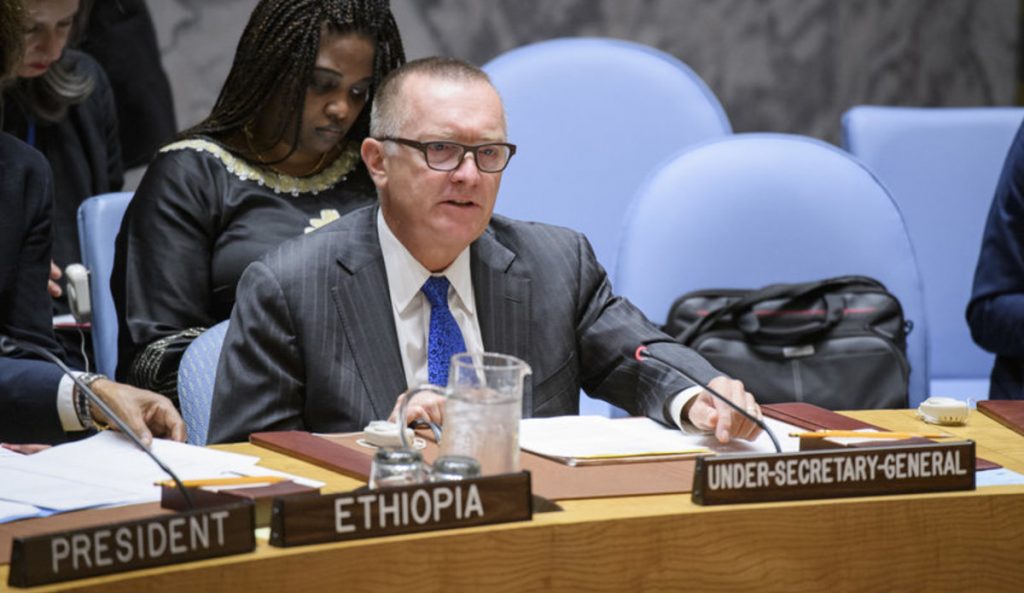
External Actors as Impeding Factors
Besides the complexity of the ongoing Tigray conflict, the position of the US regarding the conflict is another problem in resolving the conflict within a regional framework and Africa-wide principle of “African solutions for African problems.” Following the inability of President Joe Biden’s special envoy Jeffrey Feltman to the Horn of Africa to kick-start a meaningful mediation initiative to the conflict, President Biden ordered in mid-September the imposition of severe sanctions on Ethiopia, Eritrea, and the TPLF should the warring parties fail to reach a negotiated ceasefire “in weeks rather than months.” The US’s resort to coercive sanctions rather than diplomacy and soft power may therefore hamper the efforts of regional mediators and harden Ethiopia’s stance. In his open letter to President Biden Prime Minister Abiye also rejected external pressures and instead accused the US of “unwarranted pressure characterized by double standards.”
It is also doubtful if the US consulted the AU and all IGAD leaders before threatening Ethiopia with unilateral sanctions. Furthermore, it remains to be seen whether the US will provide diplomatic support to Hamdok’s IGAD or the African Union peacemaking effort.
Another important factor in the resolution of the Tigray conflict in Eritrea. Sudan’s attitude toward the Tigray conflict and the TPLF is no doubt in part influenced by its relationship with its restive neighbor Eritrea. But the problem is that Eritrean President Issaias Afeworki isn’t expected to be interested in any dialogue with his archenemy, the TPLF, which he blames for the crises in the Horn of Africa for three decades. On the contrary, the US and EU officials even warned at the end of last month of evidence of Eritrean army redeployment in Tigray three months after its withdrawal.
So any Sudanese direct or indirect role in Tigray mediation without the consent or involvement of Eritrea may antagonise President Afwerki –a move Sudan can hardly afford thanks to its ongoing spat with Ethiopia and recurring tribal violence in its eastern provinces bordering Eritrea that blocked Sudan’s and South Sudan’s oil pipelines to the Red Sea ports in recent weeks.
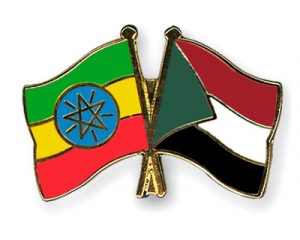 Why Sudan and Ethiopia Will Seek Peace
Why Sudan and Ethiopia Will Seek Peace
It can be fairly assumed that Sudan does not want a direct military confrontation with Ethiopia over the border dispute for domestic reasons. A major conflict with Ethiopia will hamper Khartoum’s progressive political and economic reforms and weaken the fragile civilian-military transitional government. The recent failed military coup proves the fragility of the transitional government which is widening the rift between the army generals in the Sovereign Council and the civilian cabinet of Prime Minister Hamdok. Besides, a military escalation with Ethiopia will worsen the growing popular discontent against the transitional government.
Amid heightened tensions, Ethiopia and Sudan are also in preliminary talks as Sudan shows interest in buying electricity from Ethiopia. This is one more reason to argue that Sudan’s long-term interests over the GERD are in tandem with that of Ethiopia rather than its current ally Egypt. There has long been a strong sentiment among Ethiopians that the Sudanese army generals are making Sudan Egypt’s proxy against the long-term interests of the Sudanese people with regard to Ethiopia’s dam.
Ethiopia also does not want Sudan to be dragged into the Tigray conflict because any direct Sudanese military involvement, apart from complicating the Tigray conflict, may not remain limited to Tigray but may easily spill over to Ethiopia’s western Benishangul Gumuz region where the GERD is located close to the Ethio-Sudan border. The Ethiopian government already sees ethnic Gumuz and Oromo Liberation Army insurgents colliding with the TPLF and “external enemies”, a reference to Sudan and Egypt, to thwart the GERD construction and filling process.
In the past weeks, the Tigrayan rebels launched a series of military offensives in western Tigray bordering Sudan currently occupied by the national army and allied Amhara militia, but they are yet to secure access corridors to Sudan. If they manage to take the war closer to the Sudanese border or open an access corridor however there will be a risk of dragging Sudan into the conflict. That is a scenario that both Ethiopia and Sudan should avoid by any means. In fact, it’s to avoid that scenario that the Ethiopian army still controls western Tigray after withdrawing entirely from the rest of Tigray in June.
In general, Sudan and Ethiopia have their own internal challenges as well as cooperative incentives to de-escalate tension and avoid a direct military confrontation over the GERD dispute, the border row, or the Tigray conflict. While Sudan’s offer to mediate the Tigray conflict was outrightly rejected by Ethiopia, both countries however desperately need a resolution to the conflict for their own good. Even if it may not be as a lead meditator, Sudan can also still play a key role in the resolution of the Tigray conflict.


